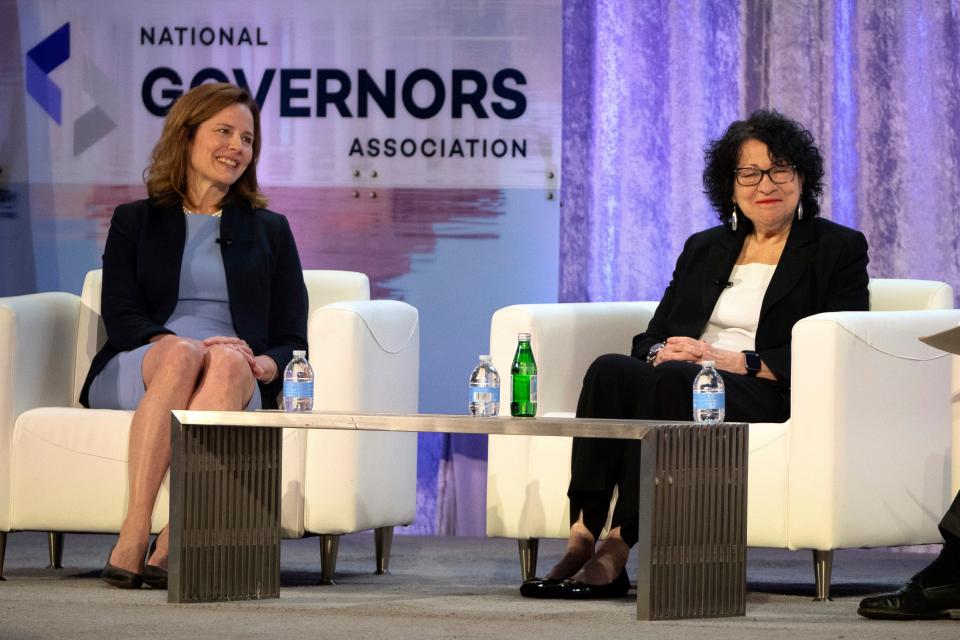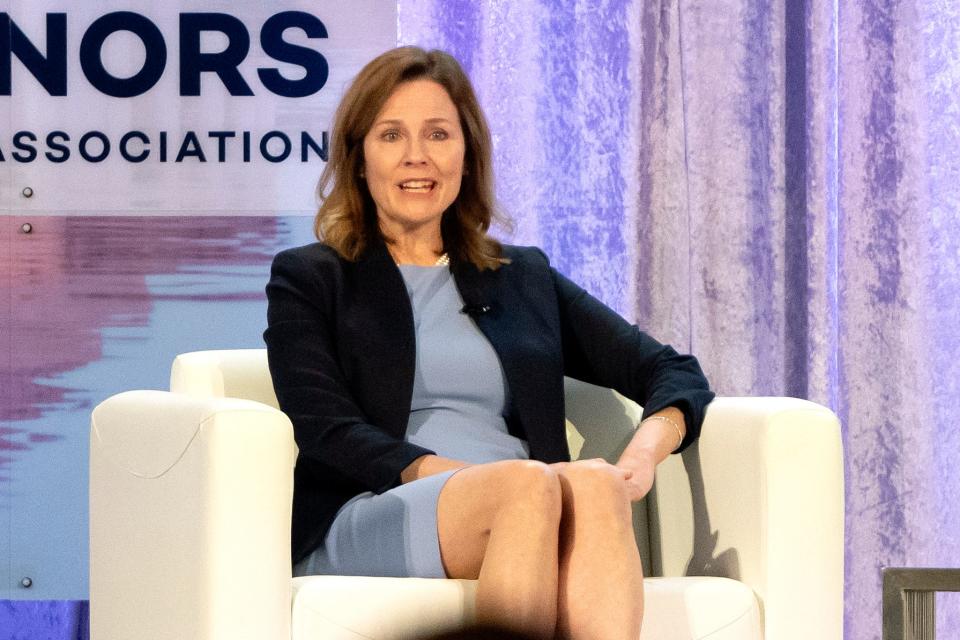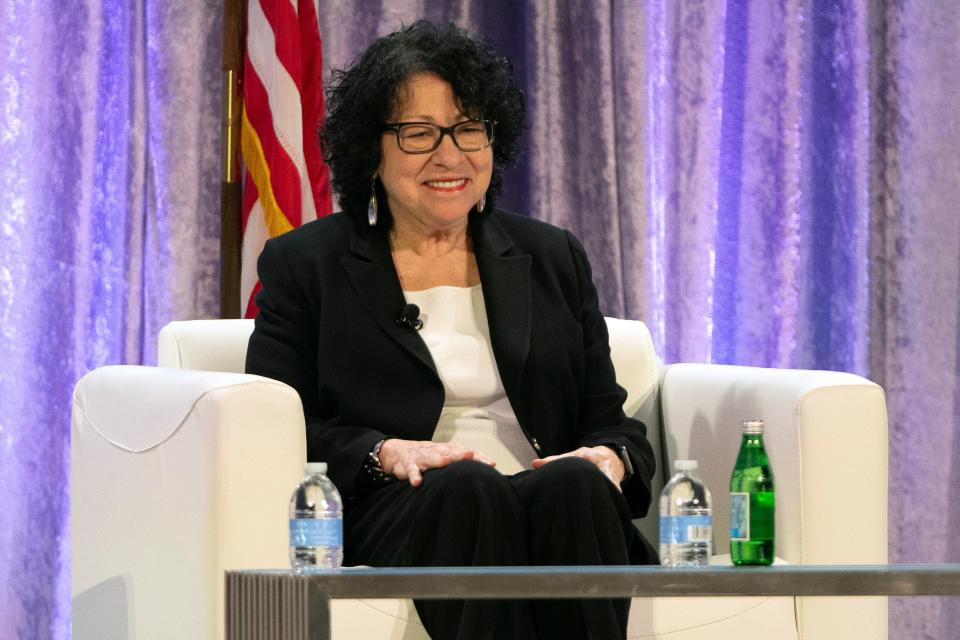One big happy 'family'? Supreme Court justices talk of unity as they weigh explosive cases
- Oops!Something went wrong.Please try again later.
- Oops!Something went wrong.Please try again later.
- Oops!Something went wrong.Please try again later.
- Oops!Something went wrong.Please try again later.
WASHINGTON − Democrats were outraged in 2020 when Republicans pushed through a replacement for Supreme Court Justice Ruth Bader Ginsberg shortly before the presidential election, calling it one of the darkest days in the Senate’s history.
But the first justice to call Amy Coney Barrett to congratulate her on the Senate’s confirmation vote was one of her new liberal colleagues, Sonia Sotomayor.
Barrett, the third nominee chosen by President Donald Trump, was at the White House when Sotomayor called her cell phone to welcome her to the “family.”
And when Barrett arrived for her first day at the court, not knowing how she would be received, Sotomayor appeared at her office laden with Halloween candy for Barrett’s children.
It’s such small gestures of kindness and concern, Barrett said Friday, that make the court a more collegial place than a polarized public may think.
“There are so many, many things that you can do to bring the temperature down,” Sotomayor said as part of a discussion the pair had at the National Governors Association winter meeting on respectfully navigating disagreements. “When we disagree, our pens are sharp. But on a personal level, we never translate that into our relationships with one another.”
Their discussion Friday was part of a yearlong initiative by the National Governors Association to help both voters and elected officials learn the skills of “healthy conflict.”
“There’s an exhausted majority of Americans who are fed up with divisive rhetoric and feel their voices are drowned out by louder extremes,” said Utah Gov. Spencer Cox, this year’s chair of the association.

The justices may need lots of candy, movie nights, and lunches together to get through the next few months when they will be deciding multiple politically charged cases.
They are weighing whether Trump can be tried on charges that he tried to steal the 2020 election and whether he can be kicked off the ballot for his role in the Jan. 6, 2021, attack on the Capitol.
Two years after overturning the 1973 decision that established a constitutional right to an abortion, the justices are considering whether to limit access to the abortion pill mifepristone and if hospitals can provide emergency abortions in states with strict abortion bans.
The court will also decide the fate of two gun-control rules and whether to uphold laws from Texas and Florida that Republicans in those states say are needed to stop the “censorship” of conservative voices on social media.
And they’re being asked to weigh in on the hot-button issue of state bans of gender-affirming care for transgender minors.
At the panel discussion, Barrett and Sotomayor were asked about none of those cases.
Nor were they asked about the ethics controversies that have rocked the court and contributed to its low public approval ratings.
Instead, they talked about their regular lunches together, the occasional movie nights and how they all – as Barrett put it − “wear the same color black robe.”
“You hear so much about our deeply divided court, or the 6-3 court,” she said. “But when you looked at the docket for last year, I think that might have been true in five cases or so. The vast number of cases were unanimous or almost unanimous.”

Both Barrett and Sotomayor said their lifetime appointments insulate them from being tied too closely to a president or a party.
“Thankfully for us, presidents don't last that long, right? There's eight years. So for us to be beholden to one of them is a little crazy,” Sotomayor said to laughter from governors. “No, seriously, there is built into the system a protection, which is lifetime appointment, that should give us the freedom to grow as we grow in the job as well.”

This article originally appeared on USA TODAY: As Supreme Court weighs explosive cases, justices try to project unity

